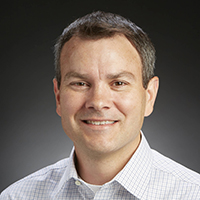 |
Christopher BradburneAssociate Professor, Department of Genetic Medicine, Johns Hopkins University, Baltimore, MD |
Dr. Bradburne is a systems biologist and biochemist with 20+ years of experience in precision medicine, biosensing, infectious disease, and astrobiology. He currently leads the Sequencing and Bioinformatics Section in the Asymmetric Operations Sector at the Johns Hopkins University Applied Physics Laboratory, and he is also an Associate Professor in the Department of Genetic Medicine in the Johns Hopkins School of Medicine.
Education: Ph.D. George Mason University (Biosciences); M.S. Clemson University (Biochemistry); B.S. Virginia Polytechnic Institute and State University (Biology/Biochemistry)
Presentation: A Lot of Space for Biology: Astrobiology, bioastronautics, and the emergence of space ; Friday, November 4, 2022; 12:00PM-1:00PM
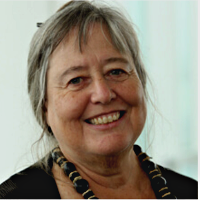 |
Lynn Helena CaporaleIndependent Scholar |
Dr. Lynn Caporale is a biochemist who has focused attention on evidence that natural selection can act on mechanisms that generate genome variation. Her postdoctoral training included a Fellowship in Pathology (Immunology) at New York University Medical Center, and positions as an Associate Researcher in Myelopoeisis at Memorial Sloan-Kettering Institute for Cancer Research, and Research Associate and Adjunct Assistant Professor in the Merrifield group at Rockefeller University. She has worked as a Senior director at Merck & Co. Inc, focused on the discovery of new drugs. She has organized several interdisciplinary international conferences, including “Molecular Strategies in Biological Evolution” (1998) and the “Effect of DNA Sequence and Structure on Genome Evolution” (2011), has written and edited books intended both for a general audience and scientists, and has discussed her work on NPR and CNN. Dr. Caporale is the author of “Darwin in the Genome,” and the Editor of several volumes including The Implicit Genome, Molecular Strategies in Biological Evolution, and The Effect of Genome Sequence and Structure on Genome Variation in Evolution.
Education: Ph.D. University of California at Berkeley (Biology), 1973; B.S. Brooklyn College (Chemistry)
Presentation: Family origins of Nobel laureates at STEM; Monday, October 28, 2019; 11:00AM-12:00PM
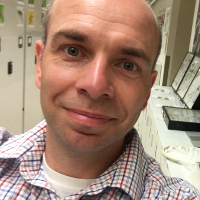 |
Torsten DikowResearch Entomologist for Diptera, National Museum of Natural History (Smithsonian Institution) |
Dr. Dikow’s research focuses on deciphering the diversity and evolutionary history of Asiloidea flies. He reconstructs phylogenetic relationships of asiloid flies and Diptera in general using morphological and genomic evidence. Dr. Dikow applies cybertaxonomic tools for open-access distribution of primary biodiversity data and taxonomic revisionary studies.
Education: Ph.D. Cornell University (Entomology), 2007; M.S. Universität Rostock, Germany (Zoology), 2002
Presentation: Discovering fly species and sharing biodiversity data; Thursday, March 28, 2019; 12:00-1:00PM
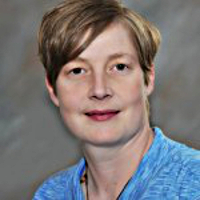 |
Katharina DittmarProgram Director, Systematics and Biodiversity Science Cluster, Division of Environmental Biology, The National Science Foundation; Professor (Biological Sciences), University at Buffalo |
A biologist Dr. Dittmar uses a diversity of molecular tools, from phylogenetics to genomics, for studying evolution of associations between blood-feeding insect (such as fleas) and their mammal hosts, both living and extinct. Following her graduate work at University of Leipzig, Dr. Dittmar pursued a post-doctoral fellowship in phylogenetics and evolution at Brigham Young University (2002-2006) and worked for a year as a Senior Research Assistant in Bioinformatics, University of Wyoming, before receiving a professorship position at University at Buffalo, NY (2007-present). Currently she serves as a Program Director at the National Science Foundation for the Systematics and Biodiversity Science Cluster, Division of Environmental Biology, and is a Research Associate at the Field Museum of Natural History in Chicago.
Education: Ph.D. University of Leipzig, Germany (Parasitology), 2001; D.V.M. University of Leipzig, Germany (Veterinary Medicine), 1997
Presentation: How I Befriended a Vampire: Microbial Symbiosis in Blood-Feeding Parasites; Friday, March 30, 2018; 12:00-1:00PM
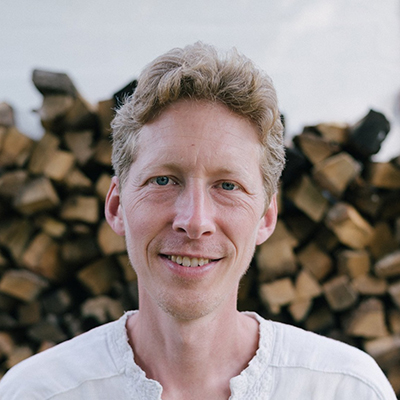 |
Jurij FedynskyjIndependent ethnomusicologist, luthier, and cultural ambassador of Ukraine |
Jurij Fedynskyj is among the leading scholars and performers of Ukrainian traditional music of the kobzari, itinerant minstrels that captured the soul of the people in their epics, spiritual verses, and songs about about everyday joys and hardships. Originally from Raleigh, North Carolina, Jurij studied classical piano at East Carolina University. As most children of the Ukrainian diaspora, he was introduced to the bandura, a uniquely Ukrainian traditional stringed instrument, at Ukrainian musical retreats. The growing interest in Ukrainian musical culture led him to study at Kyiv and Lviv music conservatories, and, eventually, Jurij relocated to Ukraine to immerse himself fully in local musical culture. He studied folk instrument making, performed with many musician, and conducted ethnographic research. He became a leader and producer of the Krachkyvka Village Band, and also the director of “Kobzarskiy Tabir” which hosts the festival and camps in the Kryachkivka village near Kiev. Most recently, Jurij’s main project “Kobzarskiy Tabir,” focuses on traditional music education. Jurij actively practices the kobzar tradition by traveling around Ukraine, as well as abroad. The recent project “Kobzaring the New World” has led to continuing tours of the US, Canada, and countries across Europe.
Since the start of the Russian invasion of Ukraine, Jurij has given over 300 concerts at countless bombshelters, military camps, and church to lift the spirit of Ukrainians fighting for their freedom and suffering from the war. In this tragic time, Jurij brings the kobzar tradition to the US to raise the awareness of this devastating war and share his experiences with the American audience.
Education: Kyiv Music Conservatory (Ukraine); Lviv Music Conservatory (Ukraine); East Carolina University
Presentation: The Kobzar’s Prayer for Ukraine; Friday, April 14, 2023; 12:00AM-1:00PM
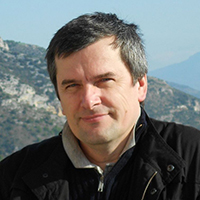 |
Nick GorkavyiPrincipal Scientist and Director, Greenwich Institute for Science and Technology, and Lead Programmer/Analyst, National Aeronautics and Space Administration (NASA) |
Dr. Nick Gorkavyi is an astrophysicist with research interests ranging from planetary rings and the evolution of the Universe to remote sensing and robotics. He has held research positions with NRC/NAS-GSFC/NASA, Crimean Astrophysical Observatory, Schafer Corporation, and QinetiQ NA. He contributed over a hundred scientific publications, including two monographs. A recipient of numerous awards for his scientific contributions, including the Robert H. Goddard Award (GSFC/NASA), Dr. Gorkavyi is also an accomplished writer, best known for his hard science fiction series “AstroNikki.” Asteroid 4654, where the main character of the AstroNikki novels spent her childhood, was named in honor of Dr. Gorkavyi.
Education: Ph.D. The Institute of Astronomy, Russia (Physics and Mathematics), 1986; B.S./M.S. Chelyabinsk State University, Russia (Theoretical Physics), 1981
Presentation: Entropy: from biology to cosmology; Friday, April 22, 2022; 12:00AM-1:00PM
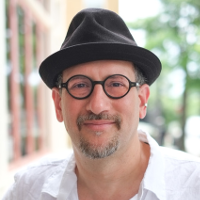 |
David GrinspoonSenior Scientist, the Planetary Science Institute |
Dr. David Grinspoon is an astrobiologist, award-winning science communicator, and prize-winning author, as well as a frequent advisor to NASA on space exploration strategy. He is a Senior Scientist at the Planetary Science Institute. In 2013 he was appointed as the inaugural Chair of Astrobiology at the U.S. Library of Congress where he studied the human impact on Earth and organized a public symposium on the Longevity of Human Civilization. Grinspoon’s writing has appeared in the New York Times, Slate, Scientific American, Boston Globe, and the Los Angeles Times. He lectures widely, and appears frequently on television, radio and podcasts, including as a frequent guest on StarTalk Radio and host of the new spinoff StarTalk All Stars. His 2017 book Earth in Human Hands: Shaping Our Planet’s Future was named a best book of the year by NPR Science Friday. His most recent book is Chasing New Horizons: Inside the Epic First Mission to Pluto.
Education: Ph.D. University of Arizona (Planetary Sciences), 1990; B.A/B.S. Brown University (Philosophy of Science/Planetary Science), 1982
Presentation: The Emergence of Planetary Intelligence: Astrobiology and the Anthropocene Earth; Friday, December 7, 2018; 2:30-3:30PM
 |
Peter JoAssociate Professor of Biology, Northern Virginia Community College (NOVA) |
Dr. Peter Jo has been teaching Human Anatomy and Physiology (and the occasional nutrition course) for twelve years. He was a practicing chiropractor with an interest in conservative management of chronic neuromusculoskeletal disorders. He completed a clinical residency in rehabilitation at the Southern California University of Health Sciences (2002-2005) and combined principles of rehabilitation, strength and conditioning (CSCS, 2009), yoga (RYT-200, 2010), and nutrition to optimize patient outcomes. Peter’s research interests are mechanisms of neural recovery in spinal cord injury and stroke, and for his doctoral dissertation he analyzed intermuscular coherence and intralimb coordination in people with chronic stroke.
Education: Ph.D. (Rehabilitation Science), George Mason University, 2019; M.S. (Nutrition), University of Bridgeport, 2009; D.C. (Chiropractic), National University of Health Sciences, 2002; B.A. (Psychology), College of William and Mary, 1996
Presentation: Motor Control and Movement Variability in Stroke Rehabilitation; Friday, November 22, 2019; 12:00-1:00PM
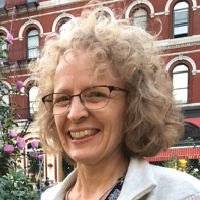 |
Karin KiontkeSenior Researcher, New York University |
Dr. Karin Kiontke studied Biology at Freie Universität Berlin (Germany) and earned her master and doctorate degrees under Prof. Walter Sudhaus, working on the ecology, morphology, taxonomy, systematics and evolution of rhabditids, a group of free-living roundworms that includes the model organism Caenorhabditis elegans. She was fascinated by the life-cycles of worms that live in temporary habitats such as cow dung, carrion, or rotting cacti, which she studied for her doctorate. To learn molecular techniques, Dr. Kiontke moved to the lab of Prof. David Fitch at New York University, where she is now a senior researcher. This lab is interested in the genetic basis of evolutionary change. To address this complex question, they study a simple structure, the tail tip of male rhabditids, which is long and pointed in some species and short and round in others. Using phylogenetics, genetics, genomics and molecular biology, Dr. Karin Kiontke studies how the rhabditid male tail tip changed shape repeatedly during evolution. Currently, she is interested in the question how developmental events are scheduled to happen in the correct order.
Education: Ph.D., M.S. (Biology), Freie Universität (Berlin, Germany), 1999
Presentation: Worm tails, RNAs, and the timing of puberty; Friday, November 15, 2019; 12:00-1:00PM
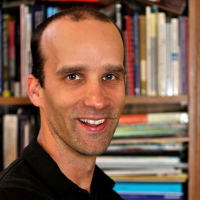 |
Matthew S. LesliePostdoctoral Research Fellow, Smithsonian Institution |
Dr. Leslie uses emerging technology, natural history collections, field research, and genetics to describe marine mammal diversity for conservation management decisions. Currently he focuses on elucidating the evolutionary relationships of balaenopterid whales using skulls, DNA, and drones. In addition to research, Dr. Leslie strives to inspire others to fall in love with Earth’s wildlife and wild places through teaching and public education.
Education: Ph.D. Scripps Institution of Oceanography, 2016; M.S. Scripps Institution of Oceanography, 2011
Presentation: Integrating DNA, Drones, and Fossils to Clarify Relationships Among Rorqual Whales; Friday, September 29, 2017; 12:00-1:00PM
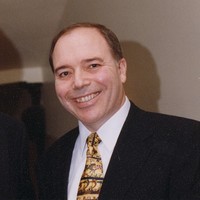 |
Paul H. NadeauProfessor, University of Stavanger, Institutt for Petroleumsteknologi, Norway |
Dr. Paul Nadeau’s research spans a range of basic and applied aspects of geology, including mineralogy and diagenesis, petroleum geoscience and reservoir geology, global and Norwegian continental shelf exploration, and basin and risk analysis. He had previously served as a geoscience advisor on reservoir geology and petrography at Statoil (Stavanger, Norway), a research specialist for Exxon Production Research Co. (Houston, TX), conducted post-doctoral research at James Hutton Institute (Aberdeen, United Kingdom), and worked as a technical advisor for the GEOSTAT Committee (San Francisco, CA) and an Exploration Geologist for the Anschutz Corp. at Rocky Mountains (Denver, CO). Currently, Dr. Nadeau is a Professor II at the University of Stavanger (Dept. Petroleum Engineering) and a Geoscience Advisor and Director of Arkadia GeoScience (Stavanger, Norway). Dr. Nadeau was honored by the Alumni Achievement Award for Science by Boston College (2001) and Schlumberger Medal by The Mineralogical Society (2000), and was elected in the Norwegian Academy of Technological Sciences in 2014. Nadeau’s comprehensive publication record can be found at ResearchGate.
Education: Ph.D. Dartmouth College (Earth Sciences), M.A. Dartmouth College, 1980; B.S. Boston College, 1975
Presentation: The US Shale Oil/Gas Revolution: A Historic Opportunity for America; Friday, February 9, 2018; 12:00-1:00PM
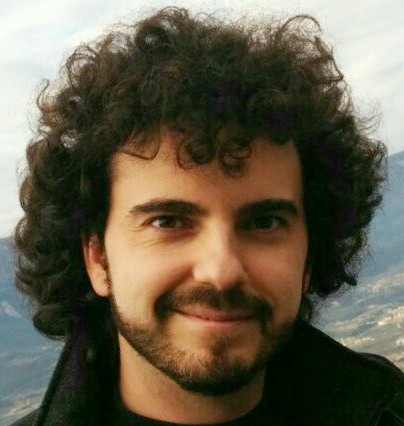 |
Daniel J. NicholsonAssistant Professor, Department of Philosophy, George Mason University |
Daniel J. Nicholson is Assistant Professor of Philosophy at George Mason University. Before coming to Mason, he held appointments at the Konrad Lorenz Institute for Evolution and Cognition Research near Vienna, the Centre for the Study of Life Sciences in Exeter, and the Cohn Institute for History and Philosophy of Science and Ideas in Tel Aviv. Currently he is a Mercator Fellow at Ruhr-Universität Bochum and a Sydney Brenner Research Fellow at the Cold Spring Harbor Laboratory Center for Humanities and History of Modern Biology. In the past he has been a visiting fellow at the University of Sydney and the Universidad Nacional Autónoma de México.
Dr. Nicholson’s research is characterized by a strongly interdisciplinary engagement with the conceptual foundations of the life sciences—an engagement that combines and integrates historical, philosophical, and theoretical approaches. A central organizing theme of his research is the ontology of living systems, particularly the ways in which organisms differ from other complex organized systems like machines, and on the epistemic implications of these differences. His work can be regarded as a concerted attempt to revive an organism-centred philosophy of biology capable of overcoming the mechanicist and reductionist limitations of late 20th C. biology. Dr. Nicholson also has longstanding interests in general debates in the philosophy of science as well as in the historical interplay between philosophical and scientific conceptions of nature.
Education: Ph.D. University of Exeter (Philosophy), M.A. University of Leeds (History and Philosophy of Science); M.S. University of Bath (Molecular and Cellular Biology)
Presentation: On Being the Right Size, Revisited; Friday, April 21, 2023; 12:00-1:00PM
 |
Brian RomansAssociate professor, Department of Geosciences, at Virginia Tech |
Dr. Brian Romans is an associate professor in the Department of Geosciences at Virginia Tech. Dr. Romans uses the deep-sea sedimentary record to reconstruct past ocean circulation and its relationship to past climatic and tectonic conditions, integrating information from a broad range of spatial and temporal scales, from seismic-reflection data that reveals regional sedimentation patterns to high-resolution records based on quantitative grain-size analysis from cores. He participated as a shipboard scientist on two IODP Expeditions (Expeditions 342 and 374).
Education: Ph.D. Stanford University (Geological & Environmental Sciences) M.S. State University of New York, Buffalo (Geology & Geological Engineering); B.S. State University of New York, Buffalo (Geology)
Presentation: Reconstructing Deep Ocean Circulation During Cenozoic Climate Transitions From the Marine Sediment Record; Friday, October 12, 2018; 12:00-1:00PM
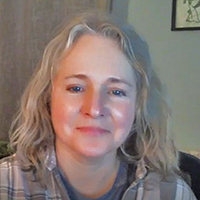 |
Deborah Leigh ShafferProfessor of Biology, Northern Virginia Community College (NOVA) |
Dr. Shaffer has been teaching Biology and Environmental Science at NOVA for more than 15 years. She uses her love of the outdoors and the creatures inhabiting it to inspire her students to care about the environment. It was also the impetus for her doctoral dissertation investigating the population dynamics of the eastern newt in the mountains of Virginia.
Education: Ph.D., George Mason University, 2021 (Environmental Science); M.S., George Mason University (Biology) 2006.
Presentation: The Elusive Eastern Newt: A Genetic Population Study; Friday, December 2, 2022; 12:00-1:00PM
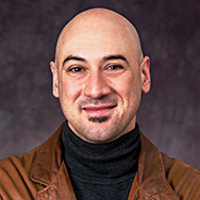 |
Aram SinnreichAssociate Professor, School of Communication, American University |
Dr. Aram Sinnreich’s work focuses on the intersection of culture, law and technology, with an emphasis on subjects such as emerging media and music. He is the author of two books, Mashed Up (2010), and The Piracy Crusade (2013), and has written for publications including the New York Times, Billboard and Wired. Prior to coming to AU, Dr. Sinnreich served as Assistant Professor at Rutgers University’s School of Communication and Information, Director at media innovation lab OMD Ignition Factory, Managing Partner of media/tech consultancy Radar Research, Visiting Professor at NYU Steinhardt, and Senior Analyst at Jupiter Research. He is also a bassist and composer, and has played with groups and artists including progressive soul collective Brave New Girl, dub-and-bass band Dubistry, and Ari-Up, lead singer of the Slits. Along with co-authors Dunia Best and Todd Nocera, Sinnreich was a finalist in the 2014 John Lennon Songwriting Contest, in the jazz category.
Education: Ph.D. University of Southern California Annenberg School for Communication, 2007; M.S. Columbia University Graduate School of Journalism, 2000
Presentation: Hip Hop and Copyright: Where Art, Technology and Law Collide; Friday, November 3, 2017; 12:00-1:00PM
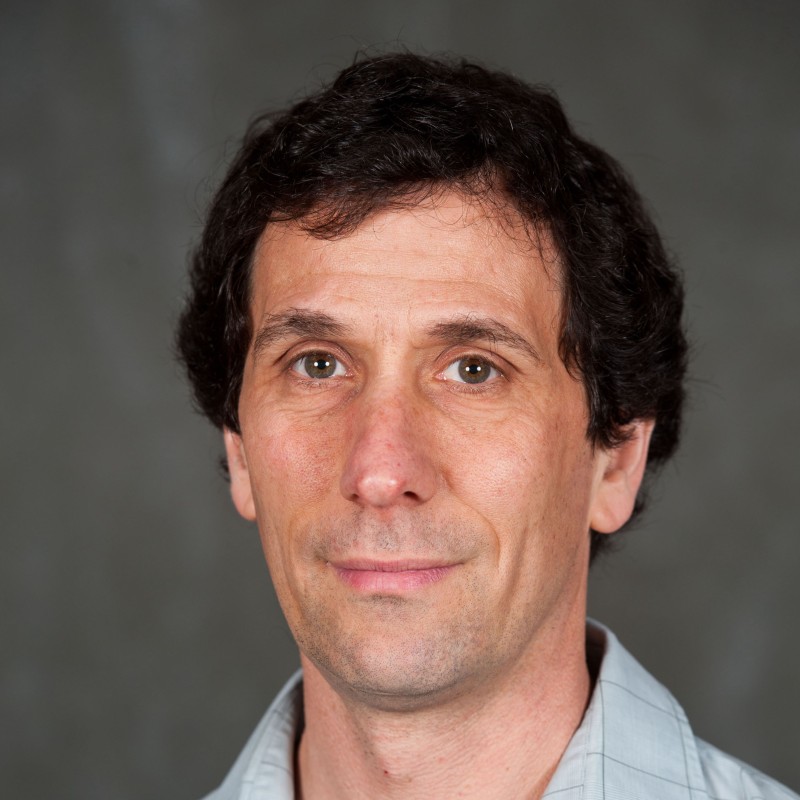 |
Jeffrey S. UrbachProfessor, Department of Physics, Georgetown University |
Prof. Urbach is a Professor of Physics at Georgetown University where he served as chair (2000-01, 2004-07, 2016-2020), the co-Director of the Program on Science in the Public Interest from its founding until 2011, and the Director of the Institute for Soft Matter Synthesis and Metrology from its founding in 2011 until 2015. In 2009-10, he served as a AAAS Science and Technology Policy Fellow at the Department of Energy. Prof. Urbach’s research interests include complex dynamics and biophysics. He has received a Sloan Foundation fellowship and the Presidential Early Career Award for Scientists and Engineers, and research funding from the National Science Foundation, the National Institutes of Health, NASA, the Air Force Office of Scientific Research, NIST, the Petroleum Research Foundation, the Research Corporation, and the Whitaker Foundation.
Prof. Urbach and his collaborators study complex dynamics in a variety of systems, ranging from shaking sand to cytoskeletal proteins to migrating neurons. Using the techniques of statistical physics and nonlinear dynamics, together with advanced imaging techniques, image processing, and computer simulations, they are trying to develop quantitative, testable descriptions of multifaceted, interacting, ever changing systems that might at first glance seem like a complicated mess. For more specifics, visit the Dynamics Imaging Lab website.
Education: Ph.D. Stanford University, 1993 (Physics); B.S. Amherst College, 1985 (Physics)
Presentation: Shear thickening fluids: what’s going on in there?; Friday, February 17, 2023; 3:00-4:00PM
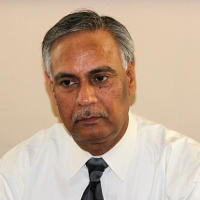 |
Ashok VaseshtaVice Provost for Research at Claflin University and Strategic Advisor/Fellow at the Institute for Advanced Sciences Convergence and International Clean Water Institute at Norwich University Applied Research Institutes |
Dr. Ashok Vaseshta’s research interests include advanced and nano materials for development of chemical-bio sensors, water safety and security, counter-terrorism, environmental pollution monitoring and remediation, and green nanotechnology. He authored over 230 publications, and edited and authored six books. Concurrently, Dr. Vaseshta serves as visiting Professor in Romania and Chaired Professor at the Academy of Sciences of Moldova. He also served as a visiting scientist at the Weizmann Institute of Science, Israel. Since 2007, he had several fellowships at the U.S Department of State serving in the offices of WMDT and Foreign Consequence Management and as S&T advisor in the office of Verification and Transparency Technologies. He is fellow of the American Physical Society, Institute of Nanotechnology, and New York Academy of Sciences. He was awarded Gold medal by the University of Armenia for his contribution to Nanotechnology.
Education: Ph.D. Virginia Polytechnic Institute and State University, Blacksburg, 1990.
Presentation: Ecosystem of Innovations in Nanotechnologies for Safety, Security, and Sustainability; Friday, October 27, 2017; 12:00-1:00PM
